Filter by
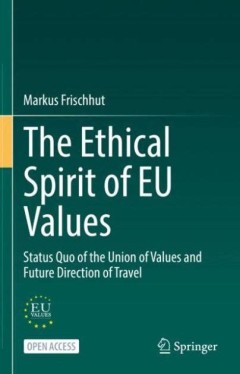
The Ethical Spirit of EU Law
This open access book seeks to identify the ethical spirit of European Union (EU) law, a context in which we can observe a trend towards increasing references to the terms ‘ethics’ and ‘morality’. This aspect is all the more important because EU law is now affecting more and more areas of national law, including such sensitive ones as the patentability of human life. Especially when une…
- Edition
- 1
- ISBN/ISSN
- 9783030105822
- Collation
- XIX, 157 hlm,: ill, lamp;
- Series Title
- -
- Call Number
- -

The Resilience of the Hungarian Legal System since 2010 : A Failed Resilience?
This open access book explains the factors that cause the poor functioning or failure of certain legal institutions or the success of others in the current Hungarian legal system after the 2010 transition from liberal to illiberal/populist democracy. The authors argue in most regulatory areas that reform is needed in lawmaking or in the application and practice of law, because there are systemi…
- Edition
- 1
- ISBN/ISSN
- 9783031704512
- Collation
- VIII, 240 hlm,: ill, lamp;
- Series Title
- -
- Call Number
- -

Conservation of Contemporary Art : Bridging the Gap Between Theory and Practice
This open access book investigates whether and how theoretical findings and insights in contemporary art conservation can be translated into the daily work practices of conservators or, vice versa, whether and how the problems and dilemmas encountered in conservation practice can inform broader research questions and projects. For several decades now, the conservation of contemporary art has be…
- Edition
- 1
- ISBN/ISSN
- 9783031423574
- Collation
- VIII, 401 hlm,: ill, lamp;
- Series Title
- 9
- Call Number
- -
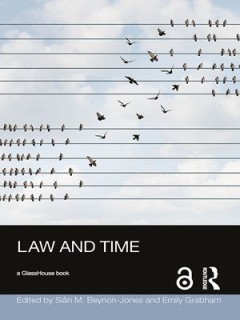
Law and Time
Research on law's relationship with time has flourished over the past decade. This edited collection aims to put law and time scholarship into wider context, advancing conversations on time and temporalities between socio-legal scholars, anthropologists, sociologists, geographers and historians. Through a diverse range of contributions, the collection explores how legal modalities of time emerg…
- Edition
- -
- ISBN/ISSN
- 1351683756
- Collation
- 282 halaman
- Series Title
- -
- Call Number
- 340 LAW
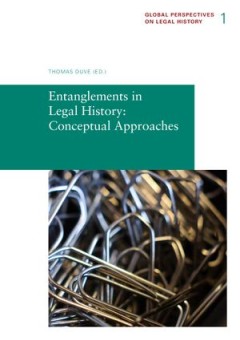
Entanglements in Legal History : Conceptual Approaches
Legal History presents a broad panorama of historical processes that trigger theoretical reflections on legal transfers and legal transplants and on the problem of the reception and assimilation laws and other modes of normativity. In this volume, legal historians across the globe reflect on their analytical traditions and present case studies in order to discuss how entangled histories of law …
- Edition
- -
- ISBN/ISSN
- 9783944773001
- Collation
- 576 halaman
- Series Title
- Global Perspectives on Legal History vol. 1
- Call Number
- 340 ENT
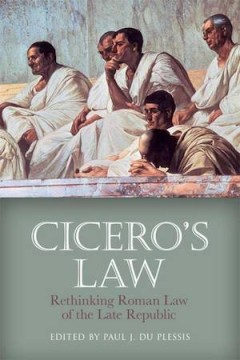
Cicero's Law : Rethinking Roman Law of the Late Republic
This volume brings together an international team of scholars to debate Cicero's role in the narrative of Roman law in the late Republic – a role that has been minimised or overlooked in previous scholarship. This reflects current research that opens a larger and more complex debate about the nature of law and of the legal profession in the last century of the Roman Republic.
- Edition
- -
- ISBN/ISSN
- 9781474408820
- Collation
- -
- Series Title
- -
- Call Number
- 340 CIC
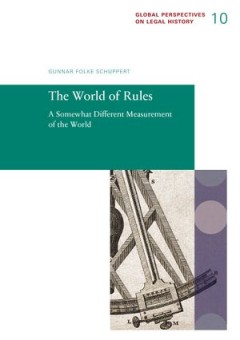
The World of Rules : A Somewhat Different Measurement of the World
"This book takes a stand against the narrowing focus of (German) jurisprudence on state law, rooted in the history of the territorially organised nation state. In the shadow of this tradition, state(-hood) law was only conceived of as state law. However, a gradual decoupling of state and law is observable – not least because of globalisation – which inevitably entails a pluralisation of leg…
- Edition
- -
- ISBN/ISSN
- 9783944773094
- Collation
- 374 halaman
- Series Title
- Global Perspectives on Legal History vol. 10
- Call Number
- 340 SCH w

Jews in Early Christian Law : Byzantium and the Latin West, 6th-11th Centuries
What is the place of Jews in medieval Christian societies? in the ninetheenth and early twentieth centuries, this question was largely confined to Jewish scholars, and the academic debates where inseparable from the upheavels of the lives of contemporary European Jews.
- Edition
- -
- ISBN/ISSN
- 9782503550527
- Collation
- -
- Series Title
- -
- Call Number
- 340 JEW
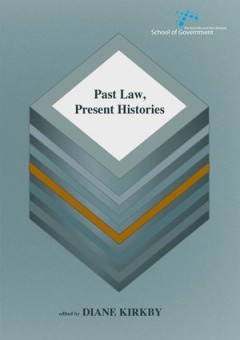
Past Law, Present Histories
This collection brings methods and questions from humanities, law and social sciences disciplines to examine different instances of lawmaking. Contributors explore the problematic of past law in present historical analysis across indigenous Australia and New Zealand, from post-Franco Spain to current international law and maritime regulation, from settler colonial humanitarian debates to effort…
- Edition
- -
- ISBN/ISSN
- 9781922144027
- Collation
- -
- Series Title
- Australia and New Zealand School of Government (ANZSOG)
- Call Number
- 340 KIR p
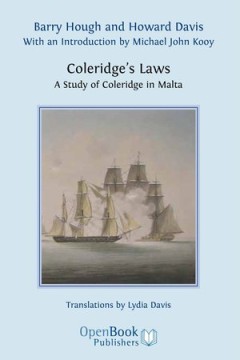
Coleridge's Laws : A Study of Coleridge in Malta
Samuel Taylor Coleridge is best known as a great poet and literary theorist, but for one, quite short, period of his life he held real political power—acting as Public Secretary to the British Civil Commissioner in Malta in 1805. This was a formative experience for Coleridge which he later identified as being one of the most instructive in his entire life. In this book, Barry Hough and Howard…
- Edition
- -
- ISBN/ISSN
- 9781906924140
- Collation
- -
- Series Title
- -
- Call Number
- 340 HOU c
 Computer Science, Information & General Works
Computer Science, Information & General Works  Philosophy & Psychology
Philosophy & Psychology  Religion
Religion  Social Sciences
Social Sciences  Language
Language  Pure Science
Pure Science  Applied Sciences
Applied Sciences  Art & Recreation
Art & Recreation  Literature
Literature  History & Geography
History & Geography